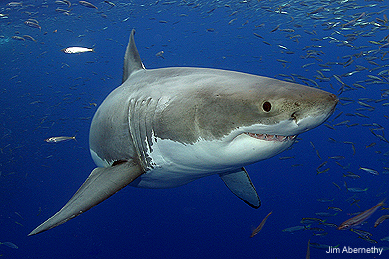Pew Commends Chilean Chamber of Deputies on Vote to End Shark Finning

Today, the Chilean Chamber of Deputies unanimously passed legislation that bans the practice of shark finning in Chilean waters. The Senate must approve the current version of this bill before it moves to President Sebastián Piñera for his signature.
“The Chamber of Deputies' strong support for the shark finning ban is good news for sharks—and the entire marine environment—off Chile's coast,” said Matt Rand, director of global shark conservation for the Pew Environment Group. “Far too many of the world's shark species are threatened or near-threatened with extinction. We applaud the Chilean government for working to reverse this disturbing trend.”
Shark finning, which entails slicing off the fins and discarding the body at sea, makes it possible for vast quantities of fins to be brought to port in one fishing trip. They are then used in shark fin soup, an Asian delicacy that has become increasingly popular with expanded economic growth.
“With its new ‘fins-attached' policy, Chile has adopted the most effective way to ensure that finning does not take place in its waters,” Rand added. “When this bill is signed into law, it will signal to the world that Chile has embraced shark conservation and stands ready to do more to protect these imperiled animals.”
The Chilean legislation would require that any fisherman who catches a shark brings it to port intact. This is easier to enforce than the bans in some countries and fishing treaties, which allow fins and bodies to be brought to port in separate piles. For enforcement, the weight of these piles is compared to make sure they are in proportion—generally fins comprise five percent of the shark's total body weight—but this comparison is complex and can be more difficult to enforce than mandating that fins be naturally attached, as in Chile's new ban.
“Today's vote highlights the growing momentum for shark conservation across the Pacific,” said Rand. “Chile now joins the United States, the U.S. territories of Guam and the Northern Marianas along with the Republic of the Marshall Islands in taking action to protect these animals over the past six months. More countries need to follow suit so that sharks are protected in every ocean.”











